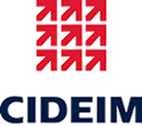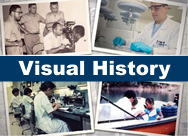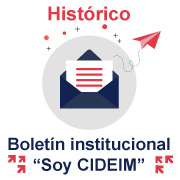|
Malaria is a global public health problem. Each year, there are approximately 300 million malaria cases, of which 90% occur in Africa, where it is estimated that every 30 seconds a child dies from this disease. In America, Colombia has the second highest number of cases, with 100,000 reported yearly. Timely diagnosis and treatment are key for the management of malaria, but parasite resistance to a wide range of drugs seriously hinders control strategies. Resistance of P. falciparum to antimalarials in Colombia is particularly concerning considering it was one of the first countries to report resistance to chloroquine in the 1960s, and today this resistance has expanded to include amodiaquine and sulfadoxine-pyrimethamine, thereby reducing available treatment options.
Our thematic area focuses on the study of the mechanisms of antimalarial resistance emergence and dissemination, with the goal of informing malaria control policies in Colombia. As part of this effort, we have established a national network for resistance surveillance using in vitro and molecular methods to detect spatiotemporal changes in parasite susceptibility to drugs in a timely fashion. Through collaborations with international institutions, we have applied cutting edge techniques to identify molecular bases for parasite resistance, which has allowed us to target the search for molecular markers associated with resistance. In addition, our group evaluates parasite characteristics that may affect the performance of diagnostic tools, such as rapid diagnostic tests, and host factors involved in disease pathogenesis.
Strategic objectives
-
To identify and validate parasite characteristics involved in mechanisms of parasite resistance to antimalarials.
-
To generate knowledge that informs antimalarial resistance surveillance and contributes to optimal use of existing drugs.
-
To identify parasite characteristics that affect performance of diagnostic tools.
-
To identify host factors that affect therapeutic response to antimalarials.
-
To clarify mechanisms of systemic inflammation that contribute to malaria pathogenesis.
Current research
-
Implementation of an antimalarial resistance surveillance system using in vitro and molecular tools.
-
Identification of genetic polymorphisms associated with decreased susceptibility of P. falciparum to antimalarials.
-
Detection of polymorphisms in parasite antigens which can serve as diagnostic targets.
Achievements
-
We contributed to updating national policies for malaria treatment in Colombia by determining the therapeutic efficacy of antimalarial drugs in the Pacific Coast and the Amazon.
-
We demonstrated the effect of human migration on the dissemination of P. falciparum strains in malaria endemic area of Colombia. This work was conducted collaboratively with researchers from the Universidad del Valle (Cali) and Universidad Nacional (Bogotá).
-
Our group established a national network for continuous surveillance of P. falciparum resistance to antimalarials using in vitro and molecular technology.
-
We characterized the genetic structure of the P. falciparum population in the Colombian Pacific coast.
-
We have established collaborative relationships with regional (RAVREDA) and international (WWARN) networks for the surveillance of resistance to antimalarials.
-
Our group led a task force for reducing malaria mortality in Valle del Cauca.
Contact
Diana Carolina Gallego Marin, DSc
This e-mail address is being protected from spambots. You need JavaScript enabled to view it
|







